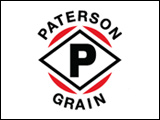The business development manager with Nioex Systems says the rapid spread of Porcine Epidemic Diarrhea throughout the U.S. has dramatically increased the level of interest in in-vessel composting of mortalities.
The Biovator is an in-vessel composting system developed in Manitoba for dealing with deadstock.
Cal Funk, the business development manager with Nioex Systems, on hand last week for World Pork Expo in Des Moines, says the system takes what mother nature has provided for thousands of years and speeds up the process of decomposing the animal.
Biovator was developed back in about 2001 when it was ready for commercial use.
We’ve got hundreds of units that are in use across Canada and the United States and in the more recent past we’ve expanded internationally and we now have units in place in South America, in Thailand, in Korea, etceteras.
The system operation is really simple which is really the plus behind it.
You take your dead animal carcass, you place it inside the drum of the Biovator, you add some wood shavings and you close the door.
The Biovator will be set to do a certain number of rotations per day, just enough to move that carcass down the drum a way so that tomorrow you can place some additional dead animal product and some additional wood shavings.
The process takes about 10 to 14 days from start to finish and the finished product is a really nice mulch of decomposed animal carcass.
It really looks like soil, a combination of wood shavings and soil when it comes out the end.
Funk says, if run properly, the temperatures in the Biovator will eradicate most pathogens associated with commercial livestock production and that has had a significant impact on sales.
He says people who had been considering the acquisition of a composter in the past and never could justify that have now made the move, simply because of biosecurity, and people he has never talked to about the product have called out of the blue and ordered units without even seeing them.



